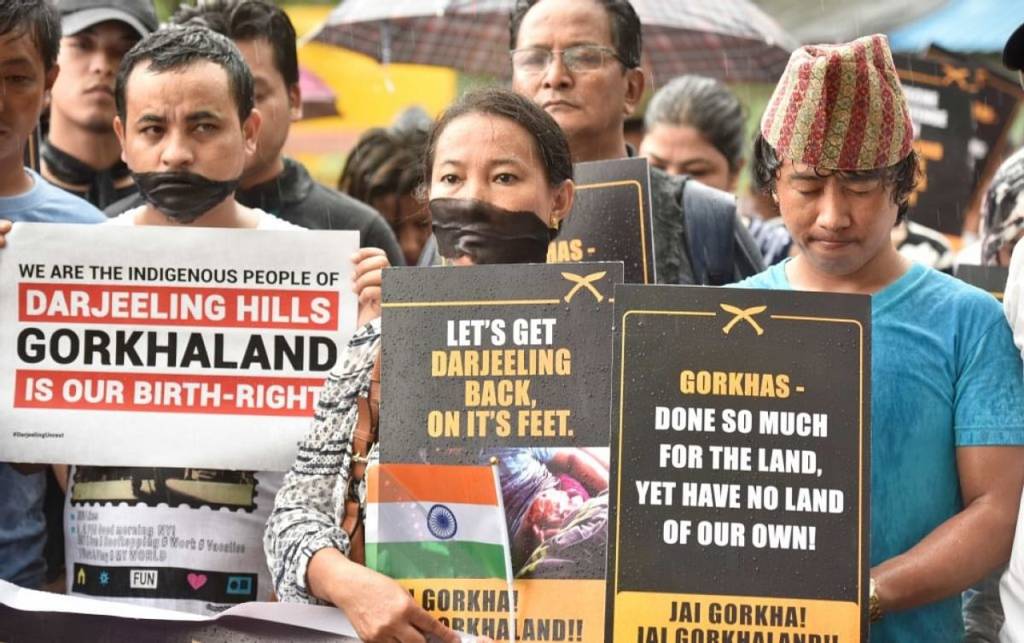Ahead of the West Bengal Assembly election, the Union Home Ministry has called a separate meeting to discuss the issues related to ‘Gorkhaland- the long-standing demand of Gorkhas of the Darjeeling hills for separate state’. The meeting, which is scheduled on September 7, will be headed by Minister of State for Home Affairs, G Kishan Reddy and Home Secretary of West Bengal Gorkha Janmukti Morcha would also be the party to the meeting.
BJP has stood for smaller states and the Union government might take a decision to create a separate state for the Gorkha people of the country, as they have been demanding since the last five decades. The demand for Gorkhaland is as old as that of Telangana or Jharkhand, but is yet to be fulfilled. The Union Home Ministry has already taken many monumental decisions like abolition of Article 370 and implementation of CAA under the leadership of Amit Shah and the creation of Gorkhaland could be the next big thing.
Darjeeling and surrounding areas have been administered by different parties throughout history. Till the 18th century they were under the Kingdom of Sikkim. A Nepalese invasion meant that the whole area came under the control of Nepal, and after the Anglo-Nepalese War in which the Kingdom of Sikkim allied with the British East India Company, all these areas came under the control of the British.
In 1947 when India became independent, all these areas became a part of the West Bengal state. In India, states have been largely formed on the basis of language or on the basis of culture. The linguistic and cultural differences have actually been the reason for the formation of states.
Gorkhaland qualifies for a separate statehood because it satisfies both these criteria. It is culturally different from the rest of West Bengal and the language spoken over here is primarily Nepali and not Bengali as is the case in the rest of West Bengal.
In the 1980’s Gorkha National Liberation Front (GNLF) started the Gorkhaland movement. The agitation led to the setting up of the Darjeeling Gorkha Hill Council (DGHC) to govern the areas under Darjeeling district. In 2007, Bimal Gurung split away from the GNLF and founded a new organization that became the leader of the Gorkhaland movement. This was the Gorkha Janmukti Morcha (GJM) which is now the most formidable force in the Gorkhaland movement. Talks were held between the Government of India, the Government of West Bengal, and the GJM. The Bharatiya Janata Party pledged its support to the GJM and endorsed its stand on the creation of a separate state called Gorkhaland.
In 2009, Jaswant Singh was elected to the Lok Sabha from Darjeeling with the support of the GJM. The BJP included the creation of Gorkhaland in its 2014 General Election manifesto and once again won the elections with the support of the GJM. In 2011, the talks between the centre, state, and the GJM led to the establishment of the Gorkhaland Territorial Administration (GTA). West Bengal CM Mamata Bannerjee claimed that the Darjeeling issue was now resolved but Bimal Gurung stated that the creation of the GTA was the first step in the creation of a separate Gorkhaland state
In the maiden elections held in the GTA, the GJM swept the polls indicating huge support for Gorkhaland. In 2013, the proposal to create the new state of Telangana provided fresh impetus to the Gorkhaland activists. Bimal Gurung quit from the GTA stating continuous interference from the West Bengal government and pursued the agitation for a separate state. In August 2013, all parties came together and for the first time ever in more than 100 years all the parties of the Darjeeling hills came together and pressed for the formation of Gorkhaland and formed the Gorkhaland Joint Action Committee (GJAC).
When the BJP came to power at centre in 2014, the Gorkhaland activists probably thought that their dream of a new state would finally come true because the BJP had supported them on multiple occasions. However, in the first term the party did not take any decision on the promise. In 2017 when Mamata Banerjee made Bengali compulsory language across the state, the demand for Gorkhaland rose once again and led to protests across the region.
Now, as the West Bengal assembly election nears, the demand for a separate state would rise again and the Union Home Ministry has already started the preparation to create the separate state of Gorkhaland. Although, the Congress and the left parties have criticized BJP and Union government for calling the meeting while TMC has remained silent on the whole issue.
